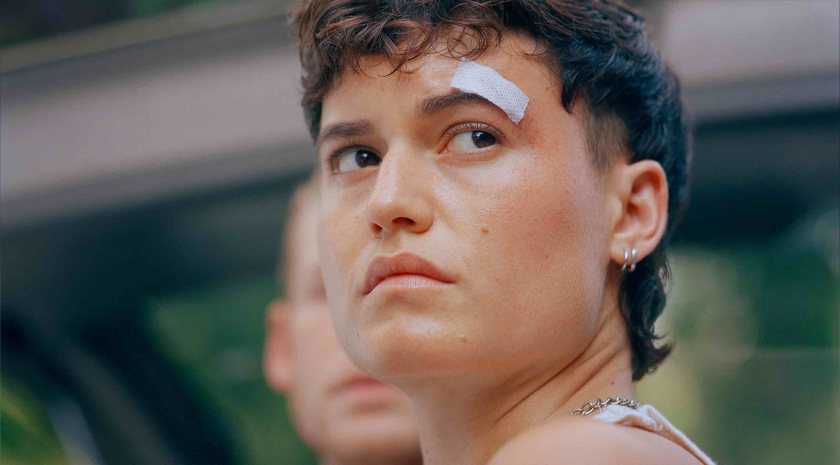Vassilis Kroustallis reviews the LGBTIQA+ drama 'Mutt' by Vuk Lungulov-Klotz.
Mutt is a mixed-race derogatory term. And just like the queer term, Chilean-Serbian trans filmmaker Vuk Lungulov-Klotz uses it in an appropriate manner to elevate it -and makes a direct, confrontational, and still warm film in the process.
In his storyline of the 87-minute 'Mutt', Feña (the spellbinding Lío Mehie) needs to re-negotiate, after his transitioning his relationships with both his father (the 'El Club' veteran Alejandro Goic), his 14-year-old sister Zoe (MiMi Ryder) and his former boyfriend John (Cole Doman, of 'Henry Gamble's Birthday Party'). In a New York City environment which reminds a low-level Sidney Lumet production, and within a day, these three arcs become more pressing for Feña.
Lungulov-Klotz, who also writes the script, carefully 'abandons' one subplot for the other, and magically reinserts it at a later place, making the whole film look like a day in a life of the gutsy, but still frail Feña. Dressed in a white sleeveless T-shirt, he faces the small obstacles that reveal more than the great dramatic confrontations. First stop, John: his boyfriend is now as confused as Feña is, yet willing to resume a kind of relationship. Second stop, Zoe (and the most intimate part of the film): Zoe needs to monitor her own transition into teenage life, and suddenly Feña needs to take care of his sister -instead of getting fixed in a state of post-transitioning angst. Third stop, the father: this is the most conventionally written part, featuring a person who still cannot understand the specifics of gender and sexual orientation -yet Lungulov-Klotz won't make an enemy out of him.
All three relationships are treated as opportunities to be explored; for instance, this happens in the laundromat that both Feña and John use after trying to find shelter from the rain; or Feña accidentally locked herself out of her own apartment by Zoe's mistake. These are moments that ring true, and ordinary and add (or delete) pressure on the main character. As the main character suggests, he needs to transition emotionally from 'watching himself doing things' to actually experiencing them -and the 'Mutt' journey is a step forward.
Realist in its aesthetic, and almost music-less, 'Mutt' has a conversational vibe even when the characters stop talking (its 4:3 aspect ratio helps focus on the characters even without close-ups). Its dialogues and lines sometimes ring too simple to be true; but what Lungolov-Klotz calls 'in betweenness' when self-describing his film is here present. Feña has successfully shown that his transition is not a choice, but an identity move; yet he still needs to learn to live with the consequences of that decision, so that she can embrace her future.
'Mutt' succeeds in being an insightful and cherished film about a trans character without seemingly really trying. It has a freshness and an openness that is both ordinary and novel. To be absorbed.
'Mutt' had its International Premiere at the 73rd Berlin Film Festival (Generation 14Plus)
Vassilis Kroustallis

